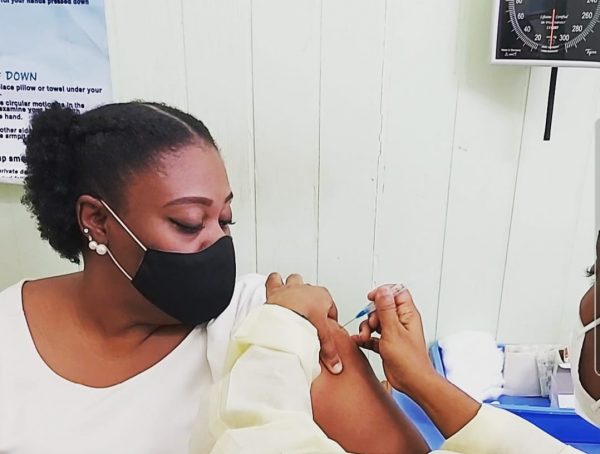Comparable to the psychological reactions in the aftermath of natural disasters, unexpected events, like this pandemic, can trigger some unfamiliar and significant psychological responses. Over the past 18 months, there have been heightened concerns about illness, death, job security and the future and an extreme sense of hopelessness and helplessness consumes many.
We may also observe that, despite our best efforts to cope with the consequences brought about by COVID-19, we frequently feel sad, anxious, angry, afraid or depressed. These feelings are also often activated by past traumatic emotional experiences repressed in the unconscious mind. Some of the psychological responses may be manifested in a physical form, causing them to be misrepresented as medical illnesses. Such physical symptoms may include: headache, nausea or stomach discomfort, fatigue and chest or muscle pains.
Additionally, many of us are going through a period of grief. We normally relate grief to death but it is indeed a normal psychological response to loss of any kind. The five stages of grief are: denial, anger, bargaining, depression and acceptance. Although five stages are identified, they do not always occur in chronological order and one stage may be repeated due to re-traumatization. We are grieving collectively; something we may have not done on such a large scale before. On one end, we feel that this is temporary but we also realize our way of life might be permanently changed.
How do we create some form of normalcy in our lives, while coping with the open-endedness of this pandemic?
We should all do self-assessments with the aim of identifying possible changes in mood, feeling or behaviour and also seek to observe changes in the behaviours of those around us. This is especially important for the more vulnerable groups such as children and older adults.
Psychosocial Support for Children and Older Adults
Children are generally unable to verbally express their emotions as effectively as adults. They may, however, display their psychological challenges through changes in their behaviours. Some examples of changed behaviours in children are: a once very active child becomes a recluse or vice versa, changes in appetite, nightmares and bedwetting (after having previously overcome this issue).
Adults should be mindful that children are likely to take their emotional cues from the important adults in their lives, therefore, how adults respond to the crisis is instructive to children. Adults should:
- Provide age-appropriate facts about what is going on and further encourage active listening and discussions.
- Create regular routines and schedules, allowing opportunities for children to play and relax.
- Keep children close to their parents or guardians, in a safe space. There are greater opportunities for incidences of child abuse during home-quarantine periods, since children may be with their potential perpetrator for longer periods.
Older adults, especially those who are both physically and socially distanced from others, may become more anxious, withdrawn and even suspicious- due to lack of and misunderstanding of information. This group should be assisted through:
- emotional support via informal networks- families, neighbours, community and faith-based groups
- sharing of simple facts about what is going on and sharing of clear and concise information.

Lesley-Ann Waldron-Martin is a Clinical Psychologist. She has worked within the field of Mental Health for the past ten years in the positions of Psychiatric Social Worker at the Acute Psychiatric Unit and currently as the Hospital Social Welfare Officer at the Dominica China Friendship Hospital.
Healthy Coping Mechanisms for All
According to Trauma Specialist Bessel van der Kolk, “We need to organize our interior lives because our exterior structures are currently compromised.” Now is the ideal time to:
- Seek Professional Psychological help
- Engage in self-care practices including exercise and activity with family
- Practice good sleeping and eating habits
- Avoid misuse and overuse of drugs and alcohol
- Network via social media and other safe mediums
- Practice self-compassion, and empathy towards others
- Avoid overconsumption of sad and traumatic news items
Rather than dwelling on the uncertainties of the future, the unknown and giving in to fear, we should attempt to remain present-focused. Currently, one of our main psychological goals should be to achieve the stage of grief of acceptance and to identify safe ways to “coexist with COVID.”

More from Current Affairs
OPINION: The Man I Knew- Reflections on the Man, Patrick Roland John.
For many the man, Patrick Roland John, has only been seen through the eyes of those who sought to control …
St. Vincent’s La Soufriére- Lessons for Dominica?
I attended the Portsmouth Secondary School where, “The Formation of the West Indies”, was one of the first chapters in my 3rd Form Geography textbook. I can still …
My V-Day Experience-They got it right!
It was finally V-Day! No, no, no, not Valentine’s Day or anything of that nature, Vaccination Day! Dominica has rolled …

























